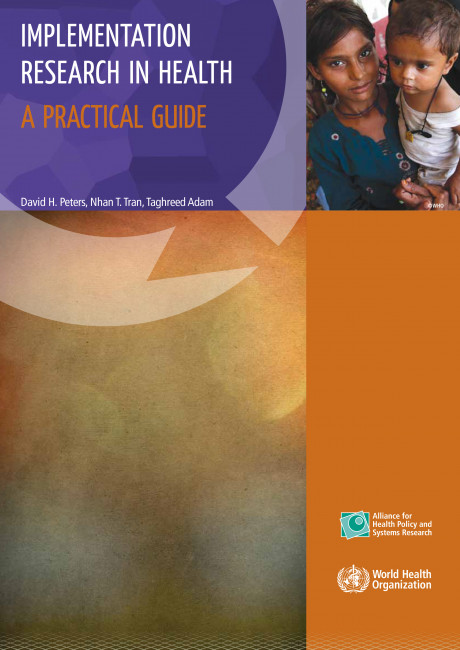Implementation issues arise as a result of a range of factors including ‘real world’ contextual factors that are either overlooked or not captured by other research disciplines. Implementation research shines a light on those factors, providing the basis for the kind of context-specific and evidence-informed decision-making that is crucial to making what is possible in theory a reality in practice. Because implementation research is embedded in reality, people working in the real world (practitioners as opposed to people ‘doing research’) often ask the questions that are the starting point for new thinking. Making sure that those questions are heard, and that the research undertaken is directed at finding answers to the questions asked rather than at the topics researchers themselves may find interesting is one of the key challenges implementation researchers face.
This Guide presents an introduction to basic concepts used in implementation research and describes the range of approaches and applications that it can be used for. The main aim of the Guide is to support the development of and demand for implementation research that is problem-focused, action-oriented and above all aligned with health system needs. The first half of the guide makes the case for why implementation research is needed, provides a workable definition, and discusses the conduct of implementation research. The second half details the various methods and study designs that can be used to carry out implementation research, and, using examples, illustrates the application of quantitative, qualitative, and mixed-method designs to answer complex questions related to implementation and scale-up.



